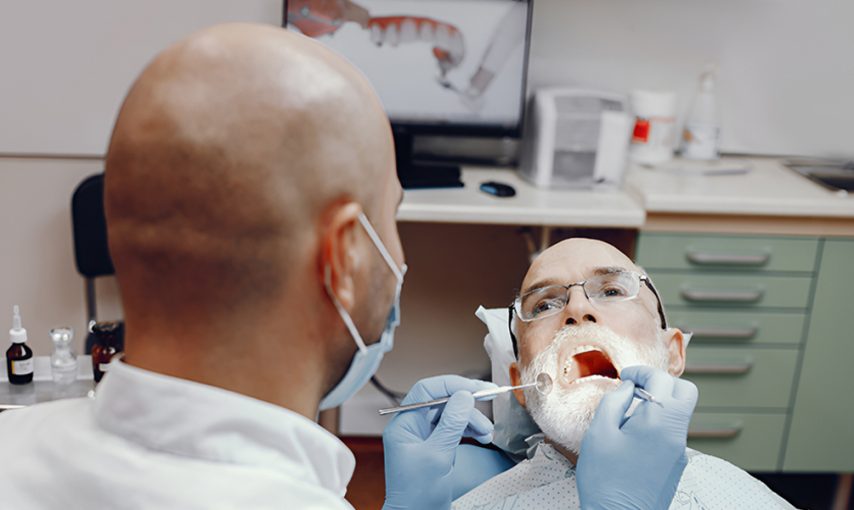As we age, our dental needs change. It’s no secret—our teeth take a hit over time. Whether due to natural wear, gum disease, or health issues, tooth loss becomes more common among seniors. But here’s the good news: modern dentures can restore your smile, speech, and ability to enjoy your favorite meals.
If you’ve been wondering which dentures work best for older adults, you’re not alone. With so many choices out there, it’s easy to feel overwhelmed. This guide will walk you through the most reliable options—without the dental jargon—so you can make the best decision for yourself or a loved one.
Full Dentures: The Classic Option for a Complete Smile
Full dentures, also known as complete dentures, are designed for seniors who have lost all their original teeth.
These dentures sit snugly on the gums and help restore facial structure. They’re removable, easy to clean, and the most common choice for those needing a full replacement.
Pros:
- Affordable and widely available
- Custom-fit to your mouth
- Improve facial appearance and speech
Cons:
- Can feel bulky at first
- May need adhesive to stay in place
Partial Dentures: A Great Fit When You Still Have Some Teeth
Got a few healthy teeth left? Partial dentures might be your match. These dentures fill in the gaps and stop the remaining teeth from shifting.
They’re attached to your natural teeth using metal clasps or flexible materials, depending on your comfort level.
Benefits:
- Preserve existing teeth
- Natural-looking design
- Easily removable for cleaning
They’re ideal for seniors who want stability without full-mouth replacement.
Implant-Supported Dentures: Modern Comfort Meets Stability
Imagine dentures that don’t slip or slide. That’s what implant-supported dentures offer. These are secured to dental implants placed in your jawbone. They’re a game-changer for seniors who want a long-term fix.
Why seniors love them:
- Superior chewing ability
- No adhesives needed
- Feel more like natural teeth
These dentures are pricier but well worth the comfort if you’re a candidate. Ask a trusted dentist in Crestwood if this option is right for you.
Flexible Dentures: Gentle on Gums, Easy to Wear
Traditional dentures can sometimes feel rigid. Flexible dentures, made from soft, bendable materials like nylon, offer more comfort—especially for seniors with sensitive gums.
Perks:
- No metal parts
- Lightweight
- Less likely to cause sore spots
They’re best for partial tooth loss and people new to wearing dentures.
Temporary Dentures: A Useful Step Between Procedures
Sometimes, dentures take a few weeks to make. In the meantime, temporary or “immediate” dentures come in handy. These are placed right after tooth removal, so you’re never without a smile.
Good to know:
- Useful while waiting for permanent dentures
- Let your gums heal
- Easy to adjust if needed
They’re not meant to be a long-term solution but can give peace of mind during transitions.
Custom Dentures: Tailored for a Natural Look
Custom dentures are designed to match your smile, gum color, and bite perfectly. These premium dentures use high-quality materials and offer a more realistic appearance.
Why choose custom?
- Personalized comfort
- Enhanced aesthetics
- Long-lasting materials
They’re an investment in your confidence and quality of life.
Overdentures: Blend of Comfort and Function
Overdentures rest on remaining natural teeth or dental implants, adding an extra layer of support. This type works well for seniors with a few stable teeth or healthy gums.
Features:
- Extra stability
- Easy to remove and clean
- Protect the jawbone
Overdentures can reduce bone loss and improve speech clarity. They’re a popular choice for many older adults.
How to Choose the Right Dentures for You?
Picking the best dentures depends on several factors:
- Number of missing teeth
- Jawbone health
- Budget
- Lifestyle and comfort preferences
Talk openly with your dentist. Ask questions. Bring up concerns. If you’re searching for a dental clinic offering denture treatment near you, find the ones that offer thorough evaluations and options that truly fit.
Tips for Seniors Adjusting to New Dentures
Wearing dentures is a change, but the adjustment doesn’t take long. Here are some real-life tips:
- Start with soft foods and work your way up
- Practice reading out loud to help with speech
- Clean dentures daily to keep them fresh
- Visit your dentist regularly for checkups and refits
If they feel odd at first—don’t worry. That’s normal. Most seniors adjust in a few weeks and find their groove again.
Why Seniors Shouldn’t Ignore Dentures?
Missing teeth doesn’t simply affect the way you smile. Chewing becomes harder. Nutrition suffers. Speech changes. Not to mention, it can lower self-confidence. Dentures restore more than just function—they restore independence.
With good denture services from a trusted provider, you can reclaim your bite and your social life. No more hiding your smile or skipping your favorite meals.
Conclusion
Whether it’s a full set or a partial, today’s dentures give seniors a real shot at enjoying life again. They’re better than ever—more comfortable, natural-looking, and designed with you in mind.
Don’t let tooth loss hold you back. Talk to the professionals at Family Dental Care. They’re ready to help you find the perfect solution with care, patience, and a smile.


